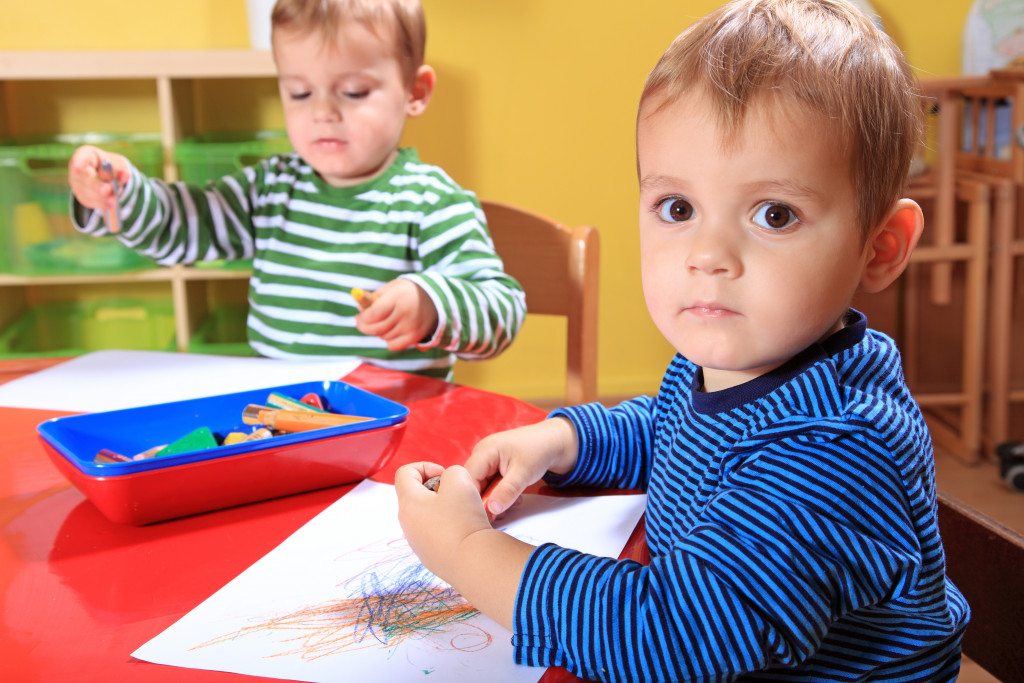• Parents must provide children with a balanced mix of love, care, and stimulation to ensure their development.
• Social interaction helps children learn how to interact with others appropriately, build trust between themselves and caregivers, and develop empathy.
• Play-based activities help children explore their environment, develop motor skills and language abilities, and form relationships with peers.
• Music, movement and art activities encourage language development, physical development, creativity, and emotional regulation.
• Outdoor exploration allows children to learn more about the world while also getting fresh air and exercise.
As a parent, you want to give your child the best possible start in life. It’s essential to ensure that your little one gets the right balance of love, care, and stimulation—and that they have the opportunity to experience a range of learning experiences from an early age. Here are essential learning experiences that will help shape your child’s development over their early years.
Social Interactions
Humans are social creatures—even babies need regular interactions with other people in order to develop socially! From birth onwards, it’s important for babies and toddlers alike to be exposed to different types of social situations, such as conversations with family members or visits from friends or relatives. This helps children learn how to interact with others in appropriate ways and builds trust between them and their caregivers. Socializing also helps children develop empathy—the ability to recognize emotions in others—which is an essential skill throughout life.
Exploration and Play-based Learning
Play is essential for any child’s physical, intellectual, and social development. Through play-based activities such as building blocks, puzzles, dress-up play and make-believe activities, children can explore their environment while developing motor skills, language abilities, problem-solving skills, and the ability to form relationships with peers.
Allowing your child to explore the world around them through play helps to nurture their curiosity and develop creative thinking skills too. You should also consider putting them in a childcare center. Here, they’ll have access to toys, materials, and well-trained teachers who can provide a range of educational experiences. They’ll also get the chance to participate in organized activities that help them to learn about new topics and build essential skills.
Learning Through Music/Movement/Art

Music has been proven time and again as an effective tool for learning. Singing songs together or playing instruments can help encourage language development while reinforcing emotions such as happiness or sadness through music. Movement activities (e.g., dancing) promote physical development, while art activities (e.g., finger painting) help foster creativity by teaching children how different colors combine when mixed together on paper or canvas! All these activities provide excellent opportunities for bonding between parent/caregiver and child too!
Outdoor Exploration
Being outside provides numerous opportunities for learning about nature—from plants and animals to weather patterns and seasons—while also helping children get plenty of fresh air and exercise too! Going on nature walks or visiting local parks are great ways of getting out into the real world so that your little one can learn more about what lies beyond the walls of home and school! But if you’re going to do this, you should also ensure your child’s safety by doing the following:
Bring water and snacks
Bring plenty of water to keep your child hydrated, along with some snacks to keep their energy levels up. Bring healthy snacks like fruits and vegetables as opposed to processed snacks like potato chips.
Wear appropriate clothing

Make sure your child is dressed for the weather and that their clothes are comfortable enough for them to move around freely. Sunscreen should also be applied when necessary, especially in hot climates.
Discuss safety rules
Talk to your child about staying safe while outdoors, such as not going too far away from you, not touching or picking up unknown objects, and not talking to strangers. You should also watch out for safety hazards such as traffic or dangerous animals.
Bring emergency supplies
Bring a first-aid kit, and make sure your child knows how to use it if needed. Also, bring a copy of their medical information just in case they need medical assistance while out of the house.
Allowing your child to explore the outdoors can be a great learning experience and an enjoyable activity for you and your little one.
Providing your child with various learning experiences is essential for their development. From social interactions to outdoor exploration and music/movement/art activities, there are many different ways you can help shape your little one’s early years in positive and creative ways.
Remember that safety should always be the top priority when exploring outdoors or engaging in any activity with children—and above all else, make sure it’s fun! With these tips in mind, you’ll have no problem giving your child a fantastic start to a life full of love and opportunities for growth.




